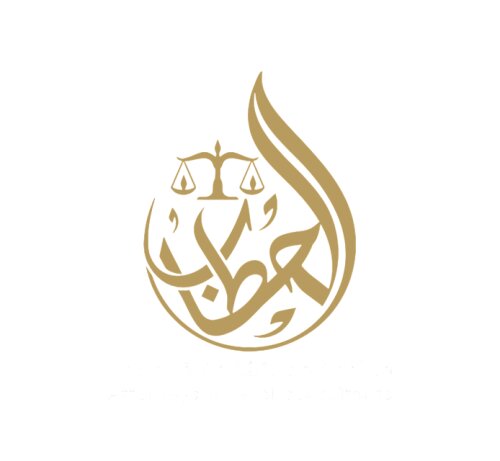Best Military Divorce Lawyers in Hashemite Kingdom of Jordan
Share your needs with us, get contacted by law firms.
Free. Takes 2 min.
Free Guide to Hiring a Family Lawyer
Or refine your search by selecting a city:
List of the best lawyers in Hashemite Kingdom of Jordan
About Military Divorce Law in Hashemite Kingdom of Jordan
Military divorce in the Hashemite Kingdom of Jordan is governed by both civil and military law. It involves unique considerations due to the specific regulations and benefits associated with military service. Military personnel and their spouses may face challenges related to deployment, military benefits, and jurisdictional issues. Understanding these laws and how they interact with general divorce laws is crucial for those who are contemplating a military divorce.
Why You May Need a Lawyer
Seeking legal advice is crucial in many military divorce situations due to the complexity and unique challenges involved. Here are a few common reasons someone might need a lawyer:
- Benefit Entitlements: Divorcing military personnel and their spouses need to understand how benefits like pensions and healthcare will be affected.
- Jurisdiction Issues: Military families often move, and establishing the correct jurisdiction for the divorce is essential.
- Child Custody Concerns: Deployment and relocation can complicate custody arrangements.
- Legal Interpretation: Understanding how military law interacts with civil law can require specialized knowledge.
Local Laws Overview
Military divorce in Jordan is subject to specific local laws that reflect a blend of civil, religious, and military legal frameworks:
- Sharia Law: Divorce proceedings often fall under Sharia jurisdiction, affecting asset division and custody.
- Military Code of Conduct: Certain military laws govern the conduct and responsibilities of service members during divorce.
- Benefit Distribution: The allocation of military pensions and other related benefits must adhere to specific regulations.
- Residency Requirements: Legal residency needs to be established in Jordan for a court to process the divorce.
Frequently Asked Questions
1. What is a military divorce?
A military divorce involves at least one party being a member of the armed forces, requiring consideration of both military and civil laws.
2. How does deployment affect divorce proceedings?
Deployment can delay proceedings and impact custody arrangements, which should be planned carefully with legal advice.
3. Can a military pension be divided?
Yes, it can be divided, but specific rules govern how pensions are calculated and distributed in a divorce.
4. Are there special custody considerations for military members?
Custody arrangements may need to accommodate deployment, transfer, or relocation, requiring detailed plans.
5. What happens to health benefits after a military divorce?
Eligibility for health benefits might change, contingent upon the length of the marriage and other factors.
6. How is child support calculated for military personnel?
Child support is determined using income guidelines that include basic military pay and allowances.
7. Can both spouses continue to reside on a military base after divorce?
Typically, only active military members can reside on base, but temporary arrangements might exist.
8. Which court handles military divorces in Jordan?
Jurisdiction can depend on residency and where the service member is stationed, often requiring family courts with Sharia insight.
9. How long does a military divorce take in Jordan?
The timeline can vary greatly, influenced by factors like disputes over child custody or asset division.
10. What role does Sharia law play in military divorce?
Sharia law governs family and divorce matters, impacting procedures, custody, and asset division according to religious principles.
Additional Resources
Consider reaching out to the following resources for assistance concerning military divorce in Jordan:
- The Ministry of Social Development: Offers family counseling and legal aid guidance.
- Jordanian Armed Forces Legal Assistance: Provides support and information about military-related legal issues.
- Local Family Courts: Handle divorce cases and can provide information on specific procedures.
- Private Family Law Practitioners: Offer tailored legal advice that considers local and military-specific circumstances.
Next Steps
If you require legal assistance with a military divorce, consider taking the following steps:
- Consult a Lawyer: Seek a legal professional experienced in both family and military law.
- Gather Documentation: Organize marriage certificates, military records, financial statements, and any relevant paperwork.
- Understand Your Rights: Learn about your rights and obligations under both civil and military regulations.
- Develop a Support System: Engage family, friends, and support groups to help navigate emotional and practical challenges.
- Schedule a Legal Consultation: Initiate legal proceedings with the support of a professional who can guide you accurately through the process.
Lawzana helps you find the best lawyers and law firms in Hashemite Kingdom of Jordan through a curated and pre-screened list of qualified legal professionals. Our platform offers rankings and detailed profiles of attorneys and law firms, allowing you to compare based on practice areas, including Military Divorce, experience, and client feedback.
Each profile includes a description of the firm's areas of practice, client reviews, team members and partners, year of establishment, spoken languages, office locations, contact information, social media presence, and any published articles or resources. Most firms on our platform speak English and are experienced in both local and international legal matters.
Get a quote from top-rated law firms in Hashemite Kingdom of Jordan — quickly, securely, and without unnecessary hassle.
Disclaimer:
The information provided on this page is for general informational purposes only and does not constitute legal advice. While we strive to ensure the accuracy and relevance of the content, legal information may change over time, and interpretations of the law can vary. You should always consult with a qualified legal professional for advice specific to your situation.
We disclaim all liability for actions taken or not taken based on the content of this page. If you believe any information is incorrect or outdated, please contact us, and we will review and update it where appropriate.
Browse military divorce law firms by city in Hashemite Kingdom of Jordan
Refine your search by selecting a city.
















